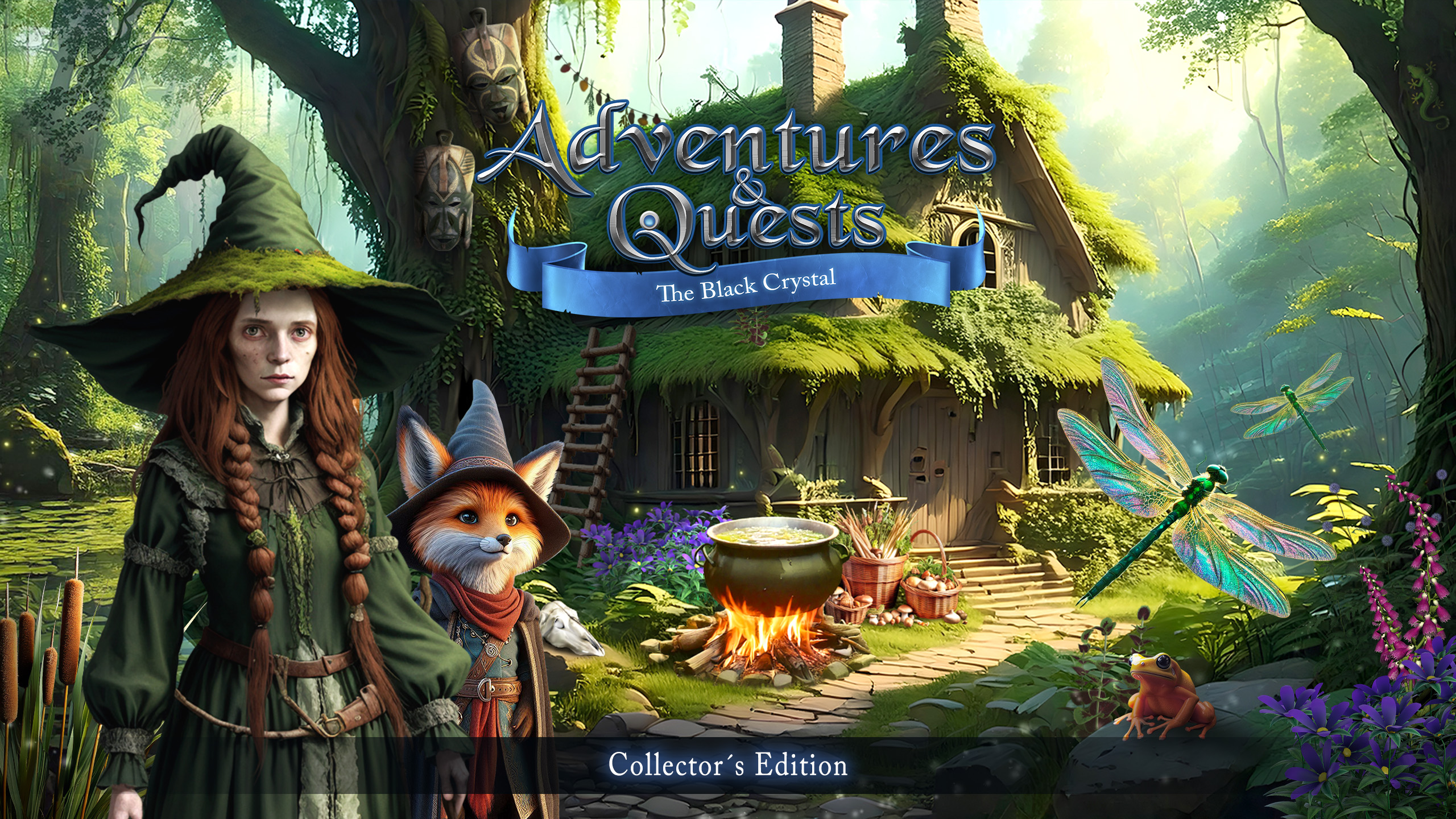
The Allure of the Quest: Why Adventure Games Still Captivate Us
Adventure games, a genre defined by exploration, puzzle-solving, and compelling narratives, hold a special place in the hearts of gamers. While action and strategy titles offer adrenaline-pumping thrills and strategic depth, adventure games beckon players into richly realized worlds, inviting them to unravel mysteries, forge connections, and ultimately, embark on meaningful quests. But what is it about the "quest" itself that continues to resonate with us, even in an age of ever-evolving gaming landscapes? This article delves into the enduring appeal of quests in adventure games, exploring their various forms, their impact on player engagement, and their ability to transport us to realms beyond our own.
The Quest: A Multifaceted Definition
At its core, a quest in an adventure game is a specific objective or series of objectives that the player must complete to progress the narrative or unlock new content. However, the simplicity of this definition belies the depth and complexity that quests can encompass. They can range from the mundane to the epic, from retrieving a lost item for a grumpy villager to saving the world from impending doom.
We can broadly categorize quests into several types:
-
Main Quests: These are the driving force of the game’s narrative, the central thread that ties everything together. They often involve a grand purpose, a perilous journey, and significant stakes. Completing the main quest usually leads to the game’s conclusion. Think of finding and destroying the One Ring in The Lord of the Rings games, or unraveling the conspiracy surrounding Manny Calavera’s travel agency in Grim Fandango.
-
Side Quests: These quests are optional and provide opportunities to explore the game world in greater detail, learn more about its inhabitants, and gain valuable rewards. They can be standalone stories or interconnected narratives that enrich the overall experience. Examples include helping the various characters in the bustling city of Monkey Island in The Secret of Monkey Island, or undertaking moral dilemmas in the post-apocalyptic world of Broken Age.
-
Fetch Quests: These are perhaps the most basic type of quest, requiring the player to retrieve a specific item or items and deliver them to a particular location or character. While sometimes criticized for their simplicity, fetch quests can be used effectively to introduce players to new areas, teach them about the game’s mechanics, or build relationships with NPCs. Imagine gathering ingredients for a potent potion in King’s Quest or collecting clues scattered throughout a haunted mansion.
-
Puzzle Quests: These quests revolve around solving puzzles, often involving logic, observation, and the manipulation of the environment. They are a staple of the adventure game genre and can range from simple riddles to complex mechanical contraptions. Consider the intricate puzzles in the Myst series or the mind-bending challenges in The Witness.
-
Character Quests: These quests focus on the development and backstory of specific characters, allowing players to forge deeper connections with them and understand their motivations. They can involve helping a character overcome a personal challenge, uncovering their hidden past, or simply spending time learning about their life. Examples include uncovering the tragic history of characters in Life is Strange or building relationships with the crew of the spaceship in The Dig.
The Power of Narrative and Immersion
The effectiveness of a quest is often directly tied to the narrative surrounding it. A well-crafted quest can immerse players in the game world, making them feel like active participants in a living, breathing story. This is achieved through several key elements:
-
Compelling Storytelling: A good quest should have a clear beginning, middle, and end, with a compelling narrative that keeps players engaged. This includes well-developed characters, intriguing plot twists, and a satisfying resolution.
-
Meaningful Choices: Allowing players to make meaningful choices that impact the outcome of a quest can significantly enhance their sense of agency and investment. These choices can range from simple dialogue options to major decisions that alter the course of the narrative.
-
Rich World-Building: A well-realized game world is essential for creating a sense of immersion. This includes detailed environments, believable characters, and a consistent lore that ties everything together.
-
Emotional Connection: Quests that evoke emotional responses in players, such as empathy, sadness, or joy, are more likely to be remembered and cherished. This can be achieved through relatable characters, tragic backstories, or heartwarming moments of connection.
The Psychological Appeal of Quests
Beyond the narrative and immersion, quests also tap into deeper psychological needs and desires. They provide a sense of purpose, challenge, and accomplishment, all of which contribute to a rewarding gaming experience.
-
Sense of Purpose: Quests give players a clear objective to strive for, a goal to work towards. This sense of purpose can be particularly appealing in a world where many people feel lost or directionless.
-
Challenge and Mastery: Quests often present challenges that require players to use their problem-solving skills, creativity, and perseverance. Overcoming these challenges provides a sense of mastery and accomplishment.
-
Exploration and Discovery: Many quests encourage players to explore the game world, discover new locations, and uncover hidden secrets. This sense of exploration and discovery can be incredibly rewarding.
-
Social Connection: Some adventure games feature quests that require players to interact with other characters, build relationships, and work together to achieve a common goal. This can provide a sense of social connection and belonging.
The Evolution of Quests in Adventure Games
Over the years, quests in adventure games have evolved in response to technological advancements and changing player expectations. Early adventure games often featured simple, linear quests with little room for player choice. However, as technology improved, developers were able to create more complex and branching narratives with a greater emphasis on player agency.
Modern adventure games often feature:
-
Open World Environments: These games allow players to freely explore a vast game world, discovering quests and challenges as they go. This can create a more immersive and dynamic experience.
-
Non-Linear Narratives: These games allow players to choose their own path through the story, with different choices leading to different outcomes. This can create a more personalized and replayable experience.
-
Complex Moral Choices: These games present players with difficult moral dilemmas that have no easy answers. This can force players to confront their own values and beliefs.
-
Emergent Gameplay: This refers to gameplay that arises from the interaction of various game systems and player choices. This can lead to unexpected and unpredictable outcomes.
Examples of Memorable Quests in Adventure Games:
To illustrate the enduring appeal of quests, let’s look at some memorable examples from various adventure games:
- The Secret of Monkey Island: The quest to become a pirate, involving hilarious trials, witty dialogue, and unforgettable characters.
- Grim Fandango: Manny Calavera’s journey through the Land of the Dead, a noir-infused adventure filled with memorable characters and poignant themes.
- Broken Age: The interconnected stories of Shay and Vella, each grappling with their own unique challenges and ultimately shaping the fate of their worlds.
- Life is Strange: Max Caulfield’s ability to rewind time allows her to make difficult choices that impact the lives of her friends and the fate of her town.
- The Walking Dead (Telltale Series): Lee Everett’s desperate attempt to protect Clementine in a zombie-infested world, forcing players to make heartbreaking choices.
The Future of Quests in Adventure Games
The future of quests in adventure games is bright. As technology continues to advance, developers will be able to create even more immersive, engaging, and personalized experiences. We can expect to see:
-
More Realistic and Believable Worlds: Advancements in graphics and AI will allow developers to create game worlds that feel more alive and believable.
-
More Intelligent and Reactive NPCs: NPCs will become more intelligent and reactive, responding to player actions in a more natural and believable way.
-
More Personalized Narratives: AI will be used to create narratives that are tailored to the individual player’s choices and preferences.
-
Greater Integration of VR and AR: VR and AR technology will allow players to physically immerse themselves in the game world, creating a truly transformative experience.
Conclusion
Quests are the lifeblood of adventure games, providing players with a sense of purpose, challenge, and accomplishment. They allow us to escape into fantastical worlds, forge meaningful connections with characters, and ultimately, embark on journeys of self-discovery. Whether it’s saving the world, solving a mystery, or simply helping a friend, the allure of the quest continues to captivate us, reminding us of the power of storytelling, the importance of connection, and the enduring human desire for adventure. As technology evolves and game design continues to innovate, the future of quests in adventure games promises even greater depth, immersion, and emotional resonance, ensuring that this beloved genre will continue to thrive for years to come. The call to adventure is timeless, and adventure games, with their compelling quests, will always be there to answer it.

